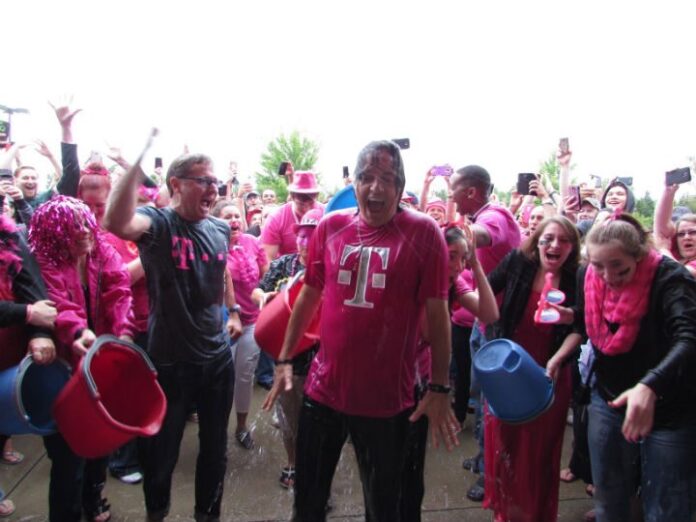Carrier to provide consumer tools for speed monitoring
Following an agreement with the Federal Communications Commission, T-Mobile US has agreed to provide more transparency to consumers who have their mobile data speeds throttled.
The agreement calls for T-Mobile US to send text messages to customers that will allow them to “more easily” garner accurate network speed information, place direct links to “accurate speed tests” on devices and alter website disclosures regarding speed management to more accurately describe what consumers can expect from their service.
The FCC noted that currently, T-Mobile US customers are able to access speed-testing applications that only show the unthrottled network speeds being offered by the carrier and not the true network speed to which a customer is being throttled. T-Mobile US customers have their network access speeds throttled to either 128 kilobits per second or 64 kbps depending on their rate plan, once they hit their allotted data bucket. Those customers will now be provided with access to network speed tests that show their current network speed.
As part of the agreement, T-Mobile US has agreed to immediately make changes to its policy with full implementation completed within 60 days.
“The FCC is committed to ensuring that broadband providers are transparent to consumers,” said FCC Chairman Tom Wheeler, in a statement. “I’m grateful T-Mobile has worked with the FCC to ensure that its customers are better informed about the speeds they are experiencing. Consumers need this information to fully understand what they are getting with their broadband service.”
T-Mobile US has recently touted the increased speed and capacity of its LTE network through the addition of spectrum resources.
The federal government in recent months has aggressively targeted network throttling measures in the shadow of broader net neutrality concerns.
The Federal Trade Commission last month filed a claim against AT&T Mobility over the mobile operator’s throttling of data speeds for “unlimited” data customers. The court action, which was coordinated with the FCC, alleges “unfair and deceptive” practices tied to the unlimited data claim.
The complaint, filed in a San Francisco federal court, alleges that AT&T Mobility did not adequately inform customers on unlimited data plans that they would have their data speeds reduced once they reached a certain amount of data used. The FTC notes that AT&T Mobility’s move in 2011 to begin throttling data speeds for unlimited data customers once they hit 2 gigabytes of usage per month, “often resulting in speed reductions of 80% to 90% for affected users.” The FTC claims such practices have impacted at least 3.5 million unique customers a total of more than 25 million times.
The FCC earlier this year called Verizon Wireless to task for plans to expand a network management platform from its legacy 3G network to its more efficient LTE network. Verizon Wireless at the last moment pulled plans to implement the “network optimization” plan on its LTE network.
In his comments on the net neutrality issue, President Barack Obama noted that such regulations should be put in place regardless of the connection method, including wireless, though with a caveat.
“The rules also have to reflect the way people use the Internet today, which increasingly means on a mobile device,” Obama noted. “I believe the FCC should make these rules fully applicable to mobile broadband as well, while recognizing the special challenges that come with managing wireless networks.”
The net neutrality proceedings are seen to be especially important for mobile operators, which to this point have not been the central target of updated regulations. The FCC in 2010 released net neutrality rules that allowed for “reasonable network management” from wireless carriers, noting that wireless networks were more easily impacted by network traffic compared with wired Internet connections. That impact comes from the amount of wireless spectrum a carrier has to carry data traffic.
However, consumer demand for wireless services has begun to out-strip the spectrum capacity of some operators. Wireless operators have been forced to manage network access by either offering capped data plans or by inserting terms and conditions allowing the operator to throttle data speeds should a consumer be deemed as consuming more than his share of resources. Both of those tactics are seen in the wired Internet world as counter to an open Internet policy.
Bored? Why not follow me on Twitter

